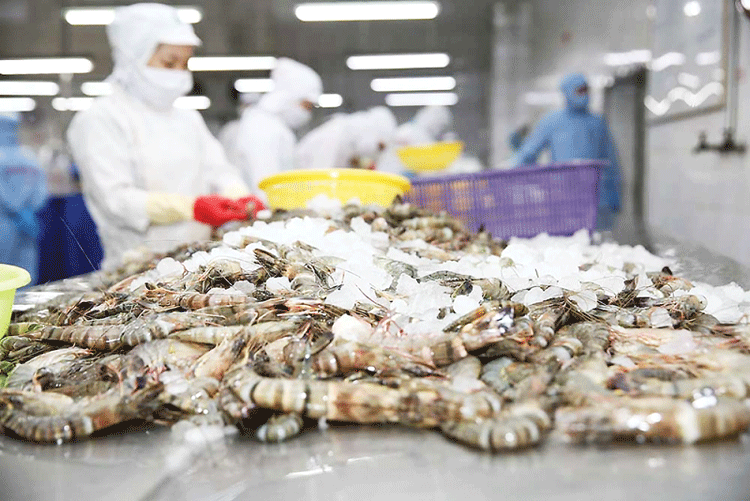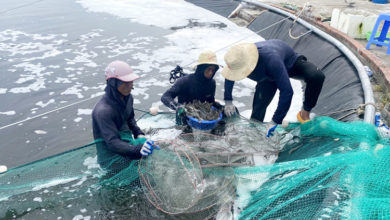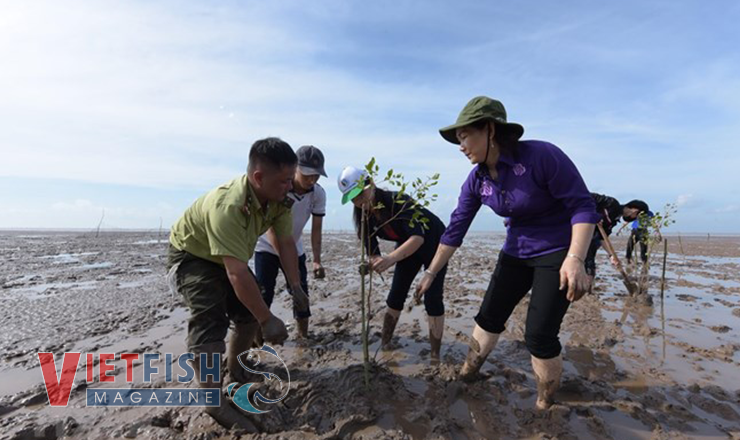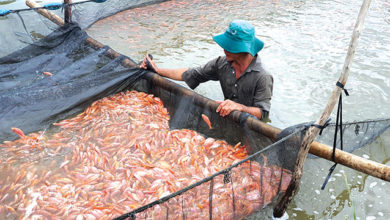Quang Ninh: Exploiting the “gold mine” of fisheries
Quang Ninh is developing a Project of Sustainable Fisheries Economic Development, aiming for the current value of fishery production to reach over VND 32 trillion by 2030.
Nghiem Xuan Cuong, Vice Chairman of the Quang Ninh Provincial People’s Committee, presided over a meeting to review the progress of the Sustainable Fisheries Economic Development Project in Quang Ninh until 2030, with a vision to 2050.
Nguyen Minh Son, Director of the Department of Agriculture and Rural Development of Quang Ninh, stated that the effective implementation of the project would end illegal fishing, contribute to the restoration of fishery resources, and marine biodiversity. Simultaneously, it would effectively exploit marine resources, laying the foundation to build, strengthen, and promote local forces to serve the national defense and security strategy at sea.
Cuong requested the Department of Agriculture and Rural Development to promptly complete the project, ensuring progress and quality. He emphasized that integrating the goals, targets, and tasks of fishery economic development into the province’s socio-economic development plan must align with the actual situation, policies, and measurable indicators. The solutions must be feasible; the scale, structure, and mobilization of resources must be clearly defined. Additional mechanisms and policies should be researched and included in the project, and the responsibilities of the units in implementing the project must be clearly identified.
The Quang Ninh fishing ground is one of the four key fishing grounds in the country, capable of sustainably exploiting about 52,000 tons annually.
Quang Ninh’s fisheries have made significant strides and achieved important results in recent years. In 2023, the total fishery output reached over 175,324 tons (with 77,039 tons from fishing and 83,834 tons from aquaculture), achieving a growth rate of 3.7%.
Notably, from 2018 to 2023, the area of aquaculture has significantly expanded; by 2023, the total aquaculture area reached 32,092 hectares, an increase of 11,347 hectares compared to 2018. Van Don, Quang Yen, Dam Ha, and Mong Cai have been proactive in producing key aquaculture species like shrimp, crab, and marine fish.
Currently, the province has 16 facilities involved in the production and trading of fishery seeds, supplying about 3 billion seeds (accounting for 40%).
According to industry experts, Quang Ninh’s marine area is a collection of various marine ecosystems such as mangrove forests, coral reefs, and seagrass beds. The diversity of these ecosystems, along with a rich and diverse fishery resource with many economically valuable species, is favorable for seafood exploitation and marine conservation.
Moreover, with a large, sheltered marine area, numerous large and small islands, clear and clean seawater surrounded by outer islands, Quang Ninh has ideal conditions for developing high-tech and industrial marine aquaculture. Additionally, favorable climatic conditions, stable and consistent tidal regimes, and a large tidal range (up to 4.3 meters) facilitate water exchange between aquaculture areas and the sea, making it convenient to draw water into and out of aquaculture ponds.
VFM






